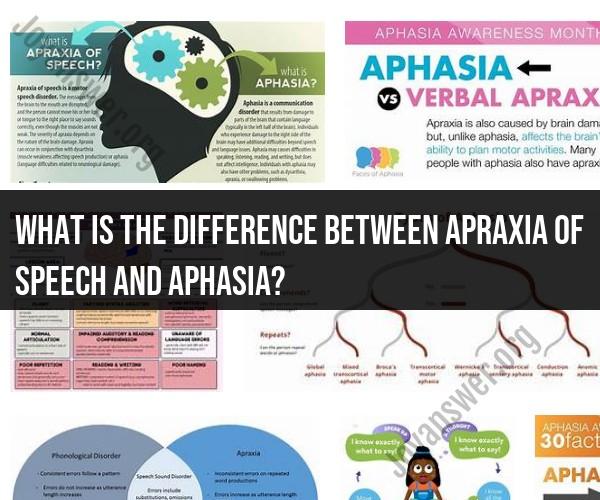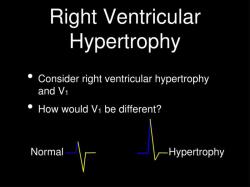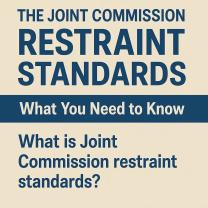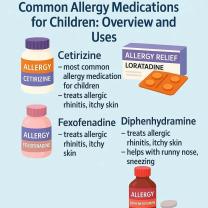What is the difference between apraxia of speech and aphasia?
Apraxia of speech (AOS) and aphasia are both language disorders, but they affect different aspects of communication and have distinct characteristics. Here are the key differences between apraxia of speech and aphasia:
Apraxia of Speech (AOS):
Motor Speech Disorder: AOS is primarily a motor speech disorder. It affects the motor planning and coordination required for speech production. Individuals with AOS have difficulty planning and executing the precise movements of the speech articulators (such as the tongue, lips, and jaw) to produce speech sounds accurately.
Speech Sound Errors: People with AOS often make inconsistent speech sound errors. They may struggle to produce individual speech sounds or may substitute, omit, or distort sounds within words. The errors can vary from one utterance to the next.
Effortful Speech: Speaking for individuals with AOS can be effortful and slow. They may experience frustration because of the difficulty in coordinating speech movements.
Comprehension Intact: AOS primarily affects speech production, not language comprehension. Individuals with AOS typically understand language at a level appropriate for their age and cognitive abilities.
Aphasia:
Language Disorder: Aphasia is a language disorder that impairs a person's ability to understand and use language. It affects receptive language (comprehension) and expressive language (speaking and writing).
Difficulty in Comprehension: People with aphasia may have difficulty understanding spoken or written language. They may struggle to follow conversations, read text, or grasp the meaning of words and sentences.
Impaired Expression: Aphasia also affects expressive language. Individuals with aphasia may have difficulty finding words, forming grammatically correct sentences, or producing coherent speech. Their speech may be fluent but lack meaning.
Language Modalities: Aphasia can affect all language modalities, including listening, speaking, reading, and writing.
Varied Types: There are different types of aphasia, such as Broca's aphasia (expressive aphasia), Wernicke's aphasia (receptive aphasia), and global aphasia, each with specific characteristics.
In summary, apraxia of speech is primarily a motor speech disorder that disrupts the motor planning and execution of speech movements, resulting in speech sound errors and effortful speech. Aphasia, on the other hand, is a language disorder that impairs comprehension and expression across various language modalities. While they both affect communication, they do so in distinct ways, and individuals with one condition may not necessarily have the other. Both conditions benefit from speech-language therapy tailored to their specific needs.
Apraxia of Speech vs. Aphasia: Key Differences and Similarities
Apraxia of speech (AOS) and aphasia are both speech disorders, but they have different causes and symptoms.
Apraxia of Speech
AOS is a motor speech disorder that affects the ability to plan and coordinate the movements necessary for speech production. People with AOS know what they want to say, but they have difficulty saying it correctly.
Aphasia
Aphasia is a language disorder that affects the ability to understand or produce language. People with aphasia may have difficulty speaking, understanding speech, reading, or writing.
Key Differences
The key difference between AOS and aphasia is that AOS is a motor speech disorder, while aphasia is a language disorder. This means that people with AOS have difficulty producing speech, while people with aphasia have difficulty understanding or producing language.
Another key difference is that AOS is typically caused by damage to the brain's motor speech areas, while aphasia can be caused by damage to any of the brain's language areas.
Similarities
Both AOS and aphasia can have a significant impact on a person's ability to communicate. This can lead to frustration, social isolation, and difficulty in school and at work.
Treatment
Treatment for AOS and aphasia typically involves speech therapy. Speech therapy can help people with AOS to learn how to coordinate the muscles used for speech. Speech therapy can also help people with aphasia to improve their language skills.
Conclusion
Apraxia of speech and aphasia are both complex speech disorders that can have a significant impact on a person's life. Early diagnosis and treatment can help people with these disorders to improve their communication skills.
If you are concerned that you or someone you know may have apraxia of speech or aphasia, it is important to see a speech-language pathologist for an evaluation.












